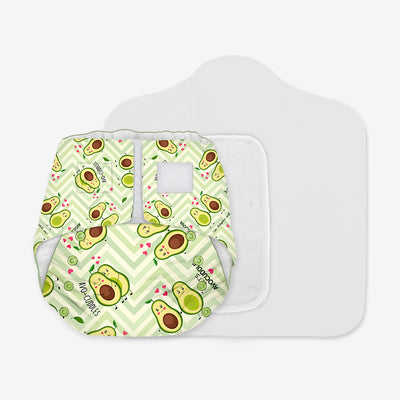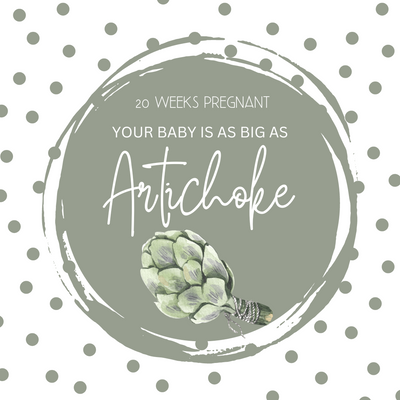Sugar Pregnancy Test: How does it work, Results And Accuracy

Are you eagerly awaiting the news of a little bundle of joy? In the age of endless DIY hacks, there's a new trend in town - the sugar pregnancy test. But can this sweet concoction really reveal if you're expecting? In this article, we're going to dive deep into the world of sugar pregnancy tests and unveil the truth behind this unconventional method. From the science behind it to the accuracy of the results, we'll explore all the important details you need to know before trying it out for yourself. So, if you're curious to find out if a simple sugar mixture can provide you with the answers you're seeking, join us on this journey as we separate fact from fiction and discover the real deal behind the sugar pregnancy test.
How do sugar pregnancy tests work?
Sugar pregnancy tests have gained popularity as a low-cost and accessible alternative to traditional pregnancy tests. The basic principle behind a sugar pregnancy test is that the reaction between urine and sugar can indicate the presence of the pregnancy hormone, human chorionic gonadotropin (hCG). To perform the test, you'll need a clean container, some sugar, and a sample of your first-morning urine. Simply mix the sugar with the urine and observe the reaction.
Advocates of sugar pregnancy tests claim that if the sugar clumps or forms a jelly-like substance, it indicates a positive result, suggesting the presence of hCG and thus a possible pregnancy. On the other hand, if the sugar remains unchanged or dissolves completely, it is considered a negative result, suggesting the absence of hCG and no pregnancy.
While the process may seem straightforward, it's important to understand the limitations and potential inaccuracies of this DIY method.
Accuracy of sugar pregnancy tests
One of the key concerns when it comes to sugar pregnancy tests is their accuracy. Unlike commercially available pregnancy tests, which are regulated by health authorities and undergo rigorous testing, sugar pregnancy tests lack scientific validation. As a result, their reliability and accuracy are questionable.
The accuracy of a sugar pregnancy test can be affected by various factors, including the concentration of hCG in the urine, the quality of the sugar used, and the individual's ability to interpret the results. Additionally, false positives and false negatives can occur, leading to confusion and potential emotional distress.
It's important to note that even traditional pregnancy tests can produce false results. However, their accuracy is generally higher due to strict quality control measures and standardized testing procedures. Therefore, if you're looking for a reliable and accurate pregnancy test, it's recommended to opt for a commercially available one.
Pros and cons of using a sugar pregnancy test
Like any DIY method, sugar pregnancy tests have their pros and cons. On the positive side, sugar pregnancy tests are affordable and readily available, making them accessible to individuals who may not have access to traditional pregnancy tests. They also offer a sense of privacy and control, as the test can be performed in the comfort of your own home.
However, there are several drawbacks to consider. First and foremost, the lack of scientific validation means that the results may not be accurate. This can lead to unnecessary stress and confusion, especially if the test produces conflicting results. Additionally, sugar pregnancy tests do not provide any additional information, such as estimating the duration of the pregnancy or detecting potential complications.
Another important factor to consider is the emotional impact of using a sugar pregnancy test. While some individuals may find it exciting and empowering to try a DIY method, others may experience anxiety and uncertainty. It's crucial to be aware of your emotional well-being and seek professional guidance if needed.
Other homemade pregnancy test options
If you're interested in exploring alternative homemade pregnancy tests, there are a few other options worth considering. These include the toothpaste pregnancy test, the bleach pregnancy test, and the vinegar pregnancy test. Similar to the sugar pregnancy test, these methods rely on the reaction between certain substances and urine to indicate a possible pregnancy.
While these tests may seem intriguing, it's important to approach them with caution. Just like the sugar pregnancy test, they lack scientific validation and may not provide reliable results. If you're serious about confirming a pregnancy, it's best to consult a healthcare professional or use a commercially available pregnancy test.
Comparing sugar pregnancy tests to commercial pregnancy tests
When it comes to reliability and accuracy, commercial pregnancy tests are the gold standard. These tests are specifically designed to detect the presence of hCG in urine and have undergone extensive testing to ensure their accuracy. They are available in various formats, including urine-based tests and blood tests, and provide clear and easy-to-understand results.
In comparison, sugar pregnancy tests cannot match the accuracy and reliability of commercial tests. While they may offer a fun and cost-effective alternative, they should not be relied upon for confirming a pregnancy. If you want reliable results and peace of mind, it's recommended to invest in a commercial pregnancy test.
Tips for using a sugar pregnancy test effectively
If you still want to try a sugar pregnancy test despite its limitations, here are a few tips to maximize your chances of obtaining accurate results:
1. Use your first-morning urine: The concentration of hCG is typically highest in the morning, making it the ideal time to perform the test.
2. Use high-quality sugar: Opt for granulated sugar or white sugar to ensure consistent and reliable results. Avoid using powdered sugar or artificial sweeteners, as they may interfere with the reaction.
3. Follow the instructions carefully: Make sure to mix the sugar and urine thoroughly and observe the reaction within the specified time frame. Any delay or deviation from the instructions may impact the accuracy of the results.
4. Interpret the results cautiously: Remember that sugar pregnancy tests are not scientifically validated, so exercise caution when interpreting the results. If you're unsure or the results are inconclusive, it's best to consult a healthcare professional.
Common Myths and Misconceptions about sugar pregnancy tests
As with any DIY method, sugar pregnancy tests are surrounded by various myths and misconceptions.
1. Myth: The color of the sugar determines the accuracy of the test.
Fact: The color of the sugar has no impact on the accuracy of the test. The reaction between urine and sugar is what matters.
2. Myth: Sugar pregnancy tests can determine the gender of the baby.
Fact: Sugar pregnancy tests cannot determine the gender of the baby. The presence or absence of hCG does not provide any information about the baby's gender.
3. Myth: Sugar pregnancy tests are 100% accurate.
Fact: Sugar pregnancy tests lack scientific validation and can produce inaccurate results. It's important to consider their limitations and potential for error.
4. Myth: Sugar pregnancy tests are a reliable alternative to commercial tests.
Fact: Commercial pregnancy tests are specifically designed and rigorously tested to ensure accuracy. Sugar pregnancy tests cannot match their reliability.
Should you try a sugar pregnancy test?
In conclusion, sugar pregnancy tests may be an interesting DIY experiment, but they should not be relied upon for accurate results. These tests lack scientific validation and can produce misleading or inconclusive results. If you're eager to confirm a pregnancy, it's best to consult a healthcare professional or use a commercially available pregnancy test that has undergone rigorous testing and provides reliable results.
Remember, there's no need to rely on unconventional methods when accurate and reliable pregnancy tests are readily available. When it comes to such an important and life-changing moment, it's best to trust the experts and ensure you have the most accurate information possible.















